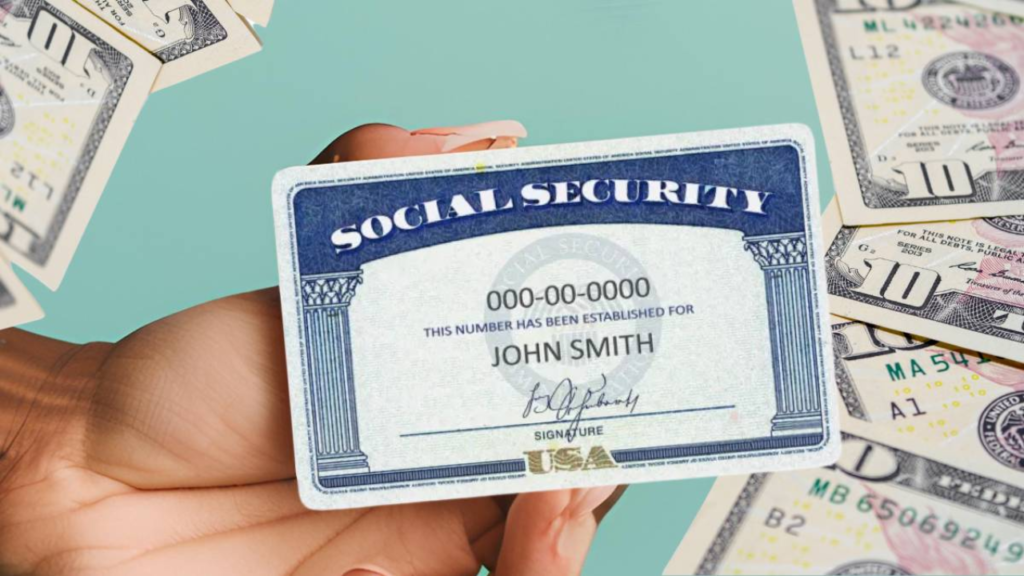Millions of Americans rely on Social Security payments every month to help with their living expenses. This week, many will see their Social Security benefits arriving on Wednesday.
These payments can vary widely — some people may receive just a few hundred dollars, while others could get over $5,000. This payment boost comes as part of the government’s plan to support seniors, disabled individuals, and families.
What Is Social Security, and Who Gets These Payments?
Social Security is a government program that provides money to people who have worked and paid taxes during their lifetime.
It helps retired people, disabled workers, and families of deceased workers to have some income. These payments are important for millions of Americans, especially retirees who depend on this money to cover daily expenses like food, housing, and medical bills.
The amount each person receives depends on many factors, such as how long they worked, how much they earned, and their age at retirement. Some people get a few hundred dollars per month, while others may get thousands.
Why Are Payments Arriving Now?
Social Security payments arrive on a regular monthly schedule, usually depending on the recipient’s birth date. For most people, payments come in the middle of the month, often around the 3rd Wednesday. This week, many beneficiaries will receive their payments on Wednesday, May 29, 2025.
In addition, this year’s payments reflect a cost-of-living adjustment (COLA). COLA is an increase added to Social Security benefits to help recipients keep up with rising prices. Because inflation has increased the cost of living, the government raised payments to make sure people don’t lose buying power.
How Much Will People Receive?
Payments can range widely:
- Some people will get smaller amounts, like a few hundred dollars.
- Others who have earned more or are qualified for additional benefits might see payments over $5,000.
- The average monthly Social Security benefit for retired workers is about $1,800 as of 2025.
- Disabled individuals and survivors may receive different amounts based on their eligibility.
The exact amount depends on the person’s work history, the type of benefit, and whether they qualify for other payments, such as spousal or survivor benefits.
How to Check Your Payment Date and Amount?

If you receive Social Security benefits, it’s important to know your payment schedule. You can check your payment date and amount easily:
- Visit the official Social Security Administration (SSA) website at ssa.gov.
- Log in to your personal “my Social Security” account.
- There you can see your upcoming payment date and amount.
- You can also sign up for email or text alerts when payments are sent.
If you don’t have an account, it’s a good idea to create one. This helps you track your benefits and avoid surprises.
Direct Deposit and Paper Checks
Most Social Security recipients get their payments via direct deposit. This means the money is automatically sent to their bank account on the payment date. Direct deposit is safer, faster, and more convenient than paper checks.
However, some people still receive paper checks in the mail. If you are in this group, expect your check to arrive a day or two after the payment date.
What If You Don’t Receive Your Payment?
If you expect a Social Security payment but don’t receive it on time, don’t panic. Sometimes delays happen because of holidays, banking issues, or mailing problems.
If you don’t get your payment within a few days of the scheduled date:
- Contact the Social Security Administration directly at their toll-free number: 1-800-772-1213.
- You can also visit your local Social Security office for help.
- If your payment was lost or stolen, SSA can provide guidance on next steps.
Extra Help for Low-Income Seniors
Besides regular Social Security payments, low-income seniors may qualify for extra assistance programs. These programs help with healthcare, food, housing, and other needs.
One such program is Supplemental Security Income (SSI), which provides extra money for those with limited income and resources.
Local and state governments also offer help, so it’s worth exploring what benefits you may be eligible for.
Why Social Security Matters More Than Ever?
As inflation impacts daily life, Social Security is a key support for many families. Rising prices for groceries, gas, and medicines make it hard for seniors and disabled people to make ends meet.
The annual COLA increase helps, but may not cover all expenses. Still, Social Security remains a vital source of income.
Many financial experts recommend that recipients budget carefully, plan for unexpected costs, and explore other support options.
How to Plan?
If you are approaching retirement or will soon start receiving Social Security benefits, it’s smart to plan:
- Use the SSA’s online tools to estimate your benefits.
- Decide the best age to start benefits based on your situation.
- Consider other sources of income like pensions, savings, or part-time work.
- Stay informed about changes to Social Security policies.
What’s Next for Social Security?
Social Security faces challenges due to the aging population and funding concerns. Experts say the program will need reforms to stay sustainable long-term.
For now, the government continues to support beneficiaries with regular payments and cost-of-living increases.
It’s important to stay updated with official announcements from SSA to know about any changes.
Summary
- Social Security payments arrive this Wednesday for millions of Americans.
- Payments range from hundreds to over $5,000, depending on eligibility.
- The recent cost-of-living adjustment helps recipients keep up with inflation.
- Check your payment schedule and amount online at ssa.gov.
- Most payments arrive via direct deposit; some still get paper checks.
- If payments are late or missing, contact SSA immediately.
- Extra programs help low-income seniors with additional needs.
- Planning helps maximize benefits and prepare for the future.
Social Security continues to be a critical financial lifeline. If you or your loved ones rely on these benefits, make sure to keep track of your payments and stay informed about any updates.






